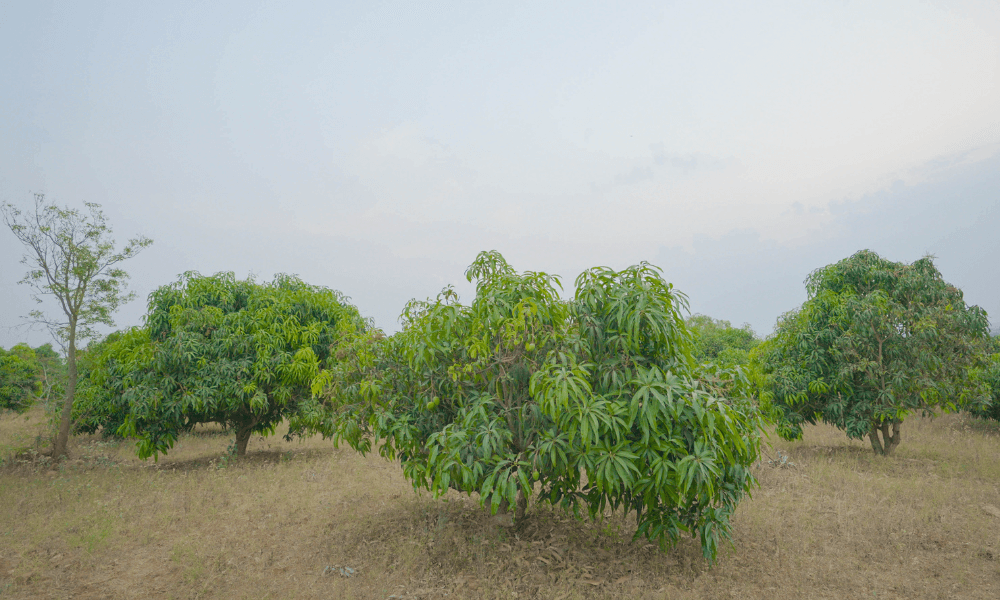Mango loyalists are spread far and wide. While this fruit binds us all in it spell, it is also important to appreciate and understand the importance of mango cultivation and the role it has towards creating a positive and sustainable environmental impact. Also, mango farming is an essential economic activity in many tropical regions of the world, providing income and livelihoods to millions of farmers and their families.

Here are some of the positive environmental impacts of mango farming
Carbon Sequestration: Mango trees absorb carbon dioxide from the atmosphere and store it in the form of organic matter in the soil. This process is called carbon sequestration and helps to mitigate the effects of climate change. While this is not the conclusive factor, but it definitely is an important one that plays a decisive role in its contribution towards a better climate.
Soil Conservation: One of the most significant ways that mango trees have a positive impact on the environment is through their ability to prevent soil erosion. Mango trees have a deep and extensive root system that helps to hold soil in place. This is particularly important in areas where the soil is vulnerable to erosion due to heavy rainfall or other environmental factors. By preventing soil erosion, mango trees help to maintain soil quality and prevent the loss of valuable nutrients from the soil.
Water Conservation: Mango trees require relatively little water compared to other crops, making them a more sustainable option for farmers in water-scarce regions. Though mango farms thrive where there is a good catchment of water, but the dependency of water is lesser than many other crops, making it a favourable choice for the farmers
Habitat for Wildlife: Mango trees provide habitat for birds, insects, and other wildlife, promoting biodiversity in the area. Mango orchards can provide nesting sites and food sources for birds, and bees which are essential pollinators for the trees.
Socio-economical impact: In many parts of the world, mango trees are an important source of income for farmers and communities. By cultivating mango trees, farmers can earn a steady income from the sale of the fruit. This helps to support local economies and provides a sustainable source of income for families and communities. In addition, mango trees can be grown in agroforestry systems, where they are interplanted with other crops. This improves soil quality and provides a range of other benefits, such as increased biodiversity and reduced water usage.
